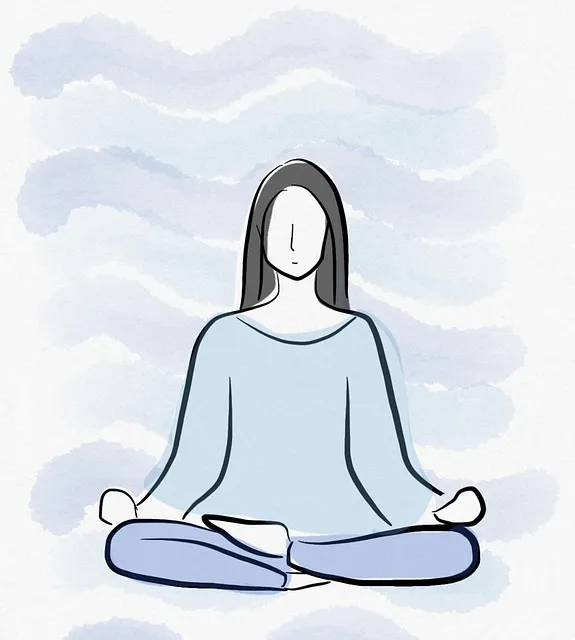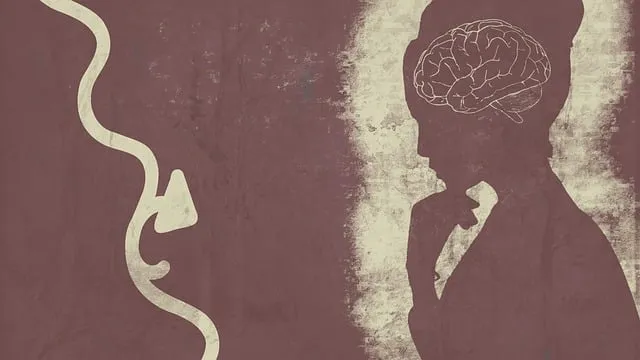Lafayette Kaiser Permanente's mental health center visits prioritize Resilience, Recovery, and Mental Health (RFM), offering structured programs for stress management, trauma recovery, and emotional well-being. Through individual therapy, group support, and flexible visiting hours, patients gain effective coping strategies, self-awareness, and inner strength, leading to improved mental health outcomes and enhanced resilience in a supportive environment. Integrating Relaxation, Mindfulness, and Resilience (RFM) exercises into daily routines, as promoted during these visits, fosters emotional regulation and stress reduction for clearer thinking and better social skills training amidst life's challenges.
“Resilience is a key component of overall well-being, and the Role-Function-Means (RFM) model offers a powerful framework for enhancing it. This article explores how RFM exercises can be integrated into daily life, drawing insights from the Lafayette Kaiser Permanente Mental Health Center—a leading support hub. We delve into the impact of visiting hours at this center on patient care and resilience, providing a comprehensive guide to exercises that foster mental resilience. Discover how these practices, when incorporated into routines, contribute to long-term psychological wellbeing.”
- Understanding RFM and its Role in Resilience Building
- The Lafayette Kaiser Permanente Mental Health Center: A Hub for Support
- Visiting Hours and the Impact on Patient Care and Resilience
- Exercises to Enhance Mental Resilience: A Comprehensive Guide
- Integrating RFM into Daily Routines for Long-Term Wellbeing
Understanding RFM and its Role in Resilience Building

Resilience is a vital asset for navigating life’s challenges, and Lafayette Kaiser Permanente mental health center visiting hours highlight an important aspect of building this strength: RFM (Recovery, Resilience, and Mental Health). This framework offers a structured approach to enhancing emotional regulation and stress management.
RFM focuses on three key areas: recovery from past traumas or stressful events, fostering resilience to face future challenges, and maintaining good mental health. By understanding and applying these concepts, individuals can develop effective stress reduction methods and improve their overall well-being. This is particularly relevant in today’s fast-paced world where effective stress management has become a critical aspect of healthcare and mental health support, as exemplified by the services provided at Lafayette Kaiser Permanente.
The Lafayette Kaiser Permanente Mental Health Center: A Hub for Support

The Lafayette Kaiser Permanente Mental Health Center stands as a beacon of support and resilience in the community. With its dedicated team of mental health professionals, this center offers a safe space for individuals seeking guidance and healing. Visitors can expect a warm and welcoming environment during their visits, tailored to accommodate diverse needs. The center’s commitment to self-care practices is evident through various programs and workshops designed to foster emotional well-being promotion techniques.
Here, patients engage in therapeutic activities, including social skills training, that empower them to navigate life’s challenges with enhanced coping mechanisms. By combining individual therapy sessions with group support, the Lafayette Kaiser Permanente Mental Health Center ensures comprehensive care, enabling visitors to build resilience and lead fulfilling lives.
Visiting Hours and the Impact on Patient Care and Resilience

Visiting hours at mental health centers, such as the Lafayette Kaiser Permanente, play a significant role in shaping patient care and resilience. The traditional visiting model often involves structured times designated for family and friends to interact with their loved ones. While this offers support, it can also create a sense of isolation during non-visiting hours.
Incorporating flexible and individualised visiting strategies, along with effective communication techniques like those promoted in Cultural Sensitivity in Mental Healthcare Practice and Compassion Cultivation Practices, can enhance patient well-being. Allowing for more spontaneous visits or providing options for extended visit times allows patients to maintain connections without the strict boundaries. This approach fosters a sense of belongingness and continuity, contributing to improved mental health outcomes and enhanced resilience among patients at Lafayette Kaiser Permanente and similar facilities.
Exercises to Enhance Mental Resilience: A Comprehensive Guide

Exercises to Enhance Mental Resilience play a pivotal role in navigating life’s challenges and maintaining overall well-being. At the Lafayette Kaiser Permanente mental health center, visiting hours offer a structured space for individuals to engage in practices that foster resilience. These exercises are designed to cultivate coping strategies, promote self-awareness, and build inner strength. One effective method is through Mental Health Education Programs Design, which empower individuals with knowledge about their emotional responses and provide tools to manage stress effectively.
Furthermore, incorporating Compassion Cultivation Practices into daily routines can significantly boost resilience. Such practices encourage empathy, kindness, and self-compassion, helping individuals reframe difficult experiences and foster a sense of connection. In alignment with these efforts, Mental Health Policy Analysis and Advocacy highlights the importance of supportive policies and community resources in building resilient individuals and communities. By integrating these strategies, individuals can enhance their mental resilience and lead more fulfilling lives.
Integrating RFM into Daily Routines for Long-Term Wellbeing

Integrating RFM—a powerful trio of Relaxation, Mindfulness, and Resilience exercises—into your daily routines can significantly contribute to long-term mental wellbeing, as advocated by experts at the Lafayette Kaiser Permanente mental health center visiting hours. These practices are not mere fleeting trends but evidence-based strategies designed to enhance emotional regulation and stress reduction methods, fostering a sense of calm and resilience in even the most challenging situations.
By dedicating just a few minutes each day to RFM techniques, individuals can cultivate better social skills training and build mental fortitude. Whether it’s starting your morning with mindful breathing exercises or ending the day with progressive muscle relaxation, these practices create a sanctuary within the chaos of daily life, allowing for clearer thinking and improved emotional responses.
The integration of Resilient Factor Model (RFM) exercises and resilience building practices, as exemplified by the Lafayette Kaiser Permanente Mental Health Center’s supportive environment and structured visiting hours, offers a holistic approach to enhancing patient mental resilience. By understanding RFM’s role in fostering adaptability and incorporating these strategies into daily lives, individuals can navigate life’s challenges more effectively. The comprehensive guide provided offers valuable tools for cultivating mental strength, ultimately leading to improved wellbeing and overall resilience, especially when integrated into personal routines over the long term. Moreover, the Lafayette Kaiser Permanente mental health center visiting hours serve as a powerful reminder of the importance of social connection in fostering resilience, highlighting how structured interactions can positively impact patient care and overall mental health.


